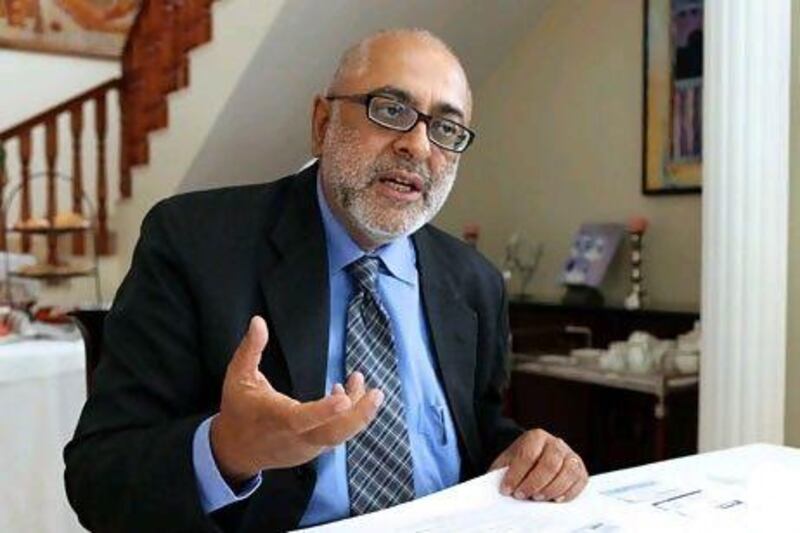Abu Dhabi and South Africa both have ambitious visions for 2030 and have achieved a tremendous pace of change in recent years.
But their specific aims are very different.
One of the main objectives of Abu Dhabi's road map is to achieve a more diversified economy that relies less on oil. South Africa already has a diversified economy, although it plans to create a more capable nation and state, says Yacoob Abba Omar, the country's ambassador to the UAE.
"Basically, most people in South Africa would agree these are the main challenges we are facing - too few jobs [and] poor education," says Mr Omar. "Everyone knows South Africa's problems because it is out in the press. We admit it as diplomats. We don't shy away from it."
It is not all bad news, however. South Africa's annual economic growth between 2003 and 2008 averaged 5 per cent. The global downturn in 2009 sent the economy into recession, but conditions improved in 2010. This year, the country expects its economy to expand by about 3.2 per cent.
"Having addressed all these problems and having looked at all positives, the national planning commission said what we really need is a paradigm shift," says Mr Omar. "People said 'look, let's start looking at where we intervene'."
The country intends to boost employment, hoping to spark a chain reaction of growth of at least 7 per cent a year, which should, in turn, raise living standards and improve conditions and opportunities.
But South Africa aims to achieve growth in a different way from Abu Dhabi, whose 2030 vision foresees a successful aerospace sector and other high-tech industries.
South Africa has "high-tech sectors, and we will continue having them, but that's not our strategic advantage", says Mr Omar. "Our comparative advantage is at the mid-scale manufacturing level."
Abu Dhabi is also pushing harder into the manufacturing sector. Both the UAE capital and South Africa are also trying to improve health care, a priority in their 2030 visions.
Abu Dhabi intends to develop world-class facilities. South Africa already has some of the world's top specialists, but the legacy of apartheid left the country's facilities uneven.
"Primary health care at a clinic level was non-existent in black areas," says Mr Omar. "We have had to run that out quite rapidly.
"But what we did have was superb tertiary-level health care, your top heart surgeons and all those kinds of people, in South Africa."
The challenge for South Africa, says Mr Omar, is how it will keep the best doctors while improving primary health care in some areas.
Then there is the capacity of the state, which is key in South Africa's 2030 vision. The country intends to make public service the career of choice, while at the same time the Government of Abu Dhabi is encouraging more UAE nationals to work for private companies instead of the Government.
South Africa intends to make its public sector more alluring by introducing training for state employees to establish stable and long-term career paths.
Mr Omar says it is a coincidence that South Africa and Abu Dhabi have 2030 visions, although there has been some sharing of these plans.
"It wasn't related at all, although I was here around the time when [Abu Dhabi] developed the plan," says Mr Omar, who adds that he advised a former minister of finance in South Africa about the Abu Dhabi initiative.
twitter: Follow and share our breaking business news. Follow us






